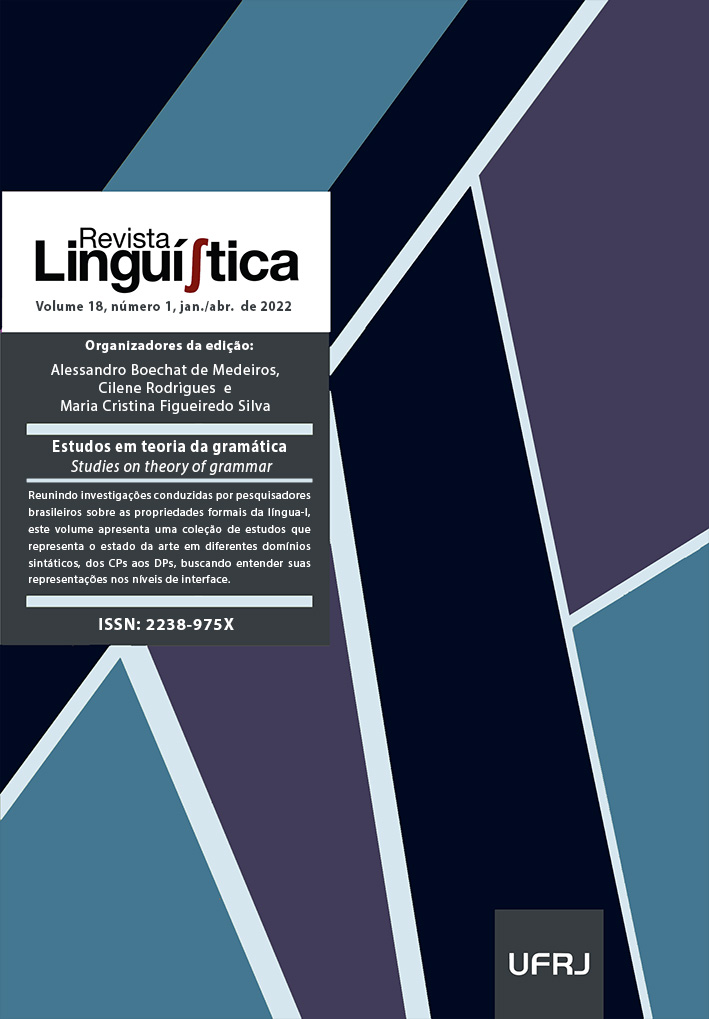The syntax-morphology interface: a structure for infinitive nominalizations in Brazilian Portuguese
DOI:
https://doi.org/10.31513/linguistica.2022.v18n1a53024Keywords:
nominalization, infinitive, category, argument structure.Abstract
This work investigates the nominalization of infinitive forms in Brazilian Portuguese. We assume, based on the Distributed Morphology framework (HALLE and MARANTZ 1993; MARANTZ, 1997), that the properties of the nominal infinitive may be explained through the combination of different functional heads in its syntactic structure. The main question we address in this work is to specify each of these heads and the hierarchical sequence in which they are organized. In order to do so, we describe the empirical properties of the nominal infinitives of PB and propose that they function as Complex Event Nominals, in the typology of Grimshaw (1990). Based on this behavior, we argue in favor of the existence of three heads of a verbal nature in the constitution of the nominal infinitive: (i) the categorizer v, responsible for the verbal category of the base, for the event reading and for the introduction of the internal argument; (ii) the Voice head (KRATZER, 1996), responsible for introducing the external argument and (iii) an aspectual head, which brings the imperfective reading and hosts the infinitive morphology. This functional sequence is below nominal heads: the categorizer n and D, responsible for the nominal properties of the formation. This syntactic structure can account for the empirical properties of the nominal infinitive, besides revealing a strong interaction between morphology and syntax, since the arguments present in the structure are inserted even before the nominal form is effectively formed in the syntax. Finally, we argue that these nominal infinitives constitute important evidence (against GRIMSHAW, 1990; ALEXIADOU, 2001) that zero nominalizations may have obligatory argument structure.Downloads
Published
Issue
Section
License
Authors who publish in the Revista Linguí∫tica agree with the following terms:
The authors maintain their rights, ceding to the journal the right to first publication of the article, simultaneously submitted to a Creative Commons license permitting the sharing with third-parties of published content as long as it mentions the author and its first publication in the Revista Linguí∫tica.
Authors may enter into additional agreements for the non-exclusive distribution of their published work (for example, posting in online institutional or non-profit repositories, or book chapters) so long as they acknowledge its initial publication in the Revista Linguí∫tica.

The journal Revista Linguí∫tica is published by the Post-Graduate program in Linguistics of UFRJ and employs a Creative Commons - Attribution-NonCommercial 4.0 International (CC-BY-NC).









